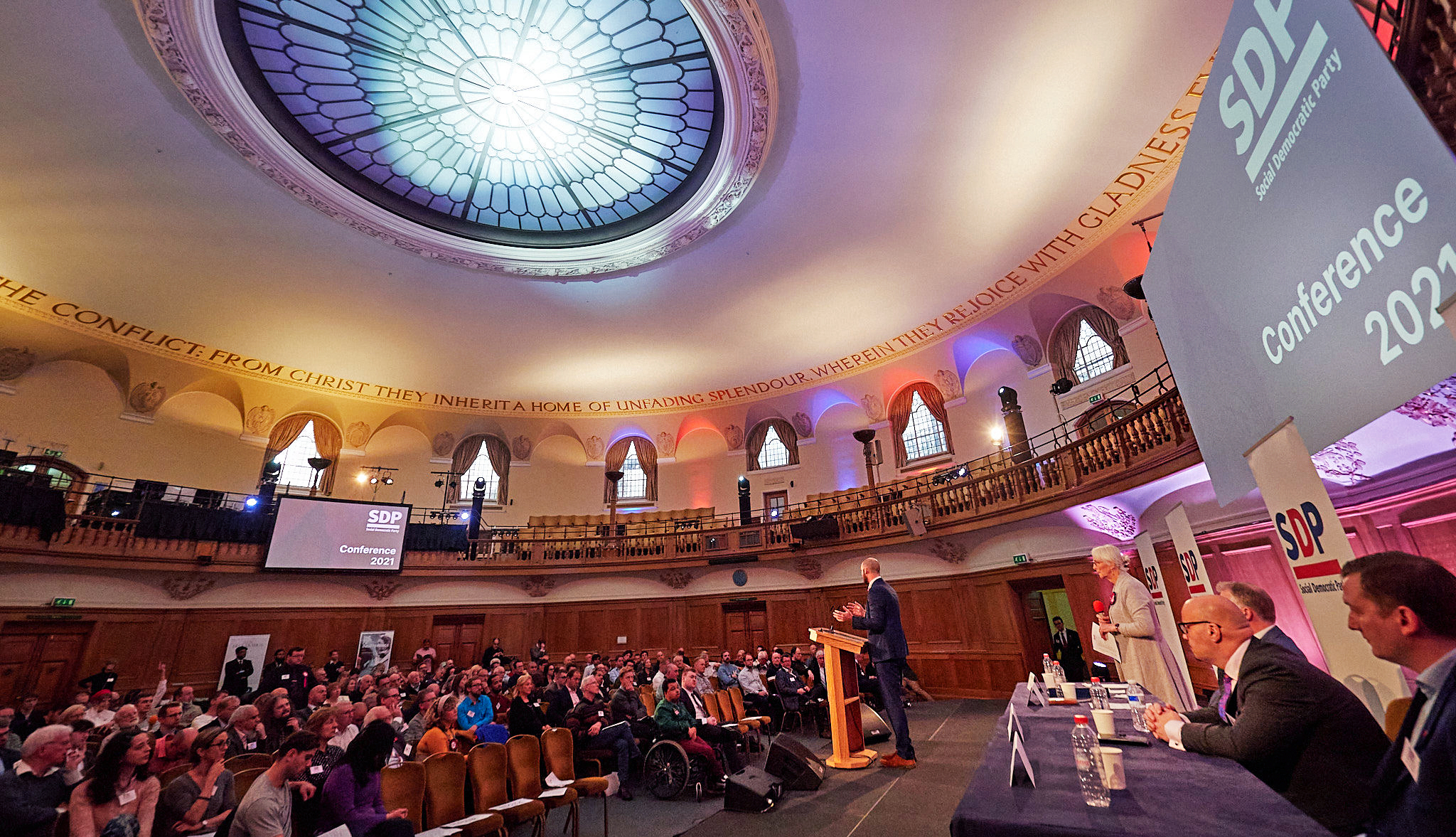The most interesting thing about any party conference is the audience. So when I went along to the SDP annual conference on Saturday, the first thing I looked at wasn’t the stage but my fellow attendees.
Who were these people? Who would attend the annual conference of a party that most people think died decades ago?
The first thing to say is that there were quite a lot of them. Today’s Social Democratic Party is the creation of a tiny group of activists who decided to carry on after David Owen’s SDP disbanded itself in 1990 (after coming behind the Monster Raving Loonies in the Bootle by-election). For much of the last thirty years, this barely surviving SDP could have held its annual conference in a taxi, but in 2021 here they were filling the Assembly Hall of Church House, Westminster. It was a gathering of hundreds, not thousands — but evidence of a growing membership.
Enough about quantity, what about the quality? I must admit I was expecting to find a gathering of elderly David Owen super-fans, their numbers boosted by an influx of UKIP refugees. After all, today’s SDP is a solidly pro-Brexit party. However, that is not what I found. A large minority of delegates were in their twenties and thirties. And these weren’t political anoraks either — most of them looked… normal.
As for the conference itself, it began with a couple of debates on policy motions — one on abolishing the pensions triple lock and another on giving academic and vocational subjects equal value in assessing schools. The first motion was defeated, and the second unanimously passed. What both debates had in common though was something highly unusual for the political events I’ve attended — they left me wanting to hear more not less from the floor.
The rest of the day, however, was taken up by a sequence of set-piece speeches. There was the leader’s speech from the William Clouston, but most speakers were non-members including David Starkey, Claire Fox and Lionel Shriver. It was an impressive line-up, albeit one that ploughed much the same anti-woke furrow.
There’s nothing wrong with that, of course. But my unsolicited advice to the SDP is to focus more on what makes it stand out among the other small, anti-woke political parties — such as Reform UK and the Laurence Fox vehicle.
As well as having some properly thought-out policies and a sensible leader, the SDP also has a non-repellent activist base. These things don’t guarantee a political breakthrough, but they give the party a fighting chance.











Join the discussion
Join like minded readers that support our journalism by becoming a paid subscriber
To join the discussion in the comments, become a paid subscriber.
Join like minded readers that support our journalism, read unlimited articles and enjoy other subscriber-only benefits.
Subscribe